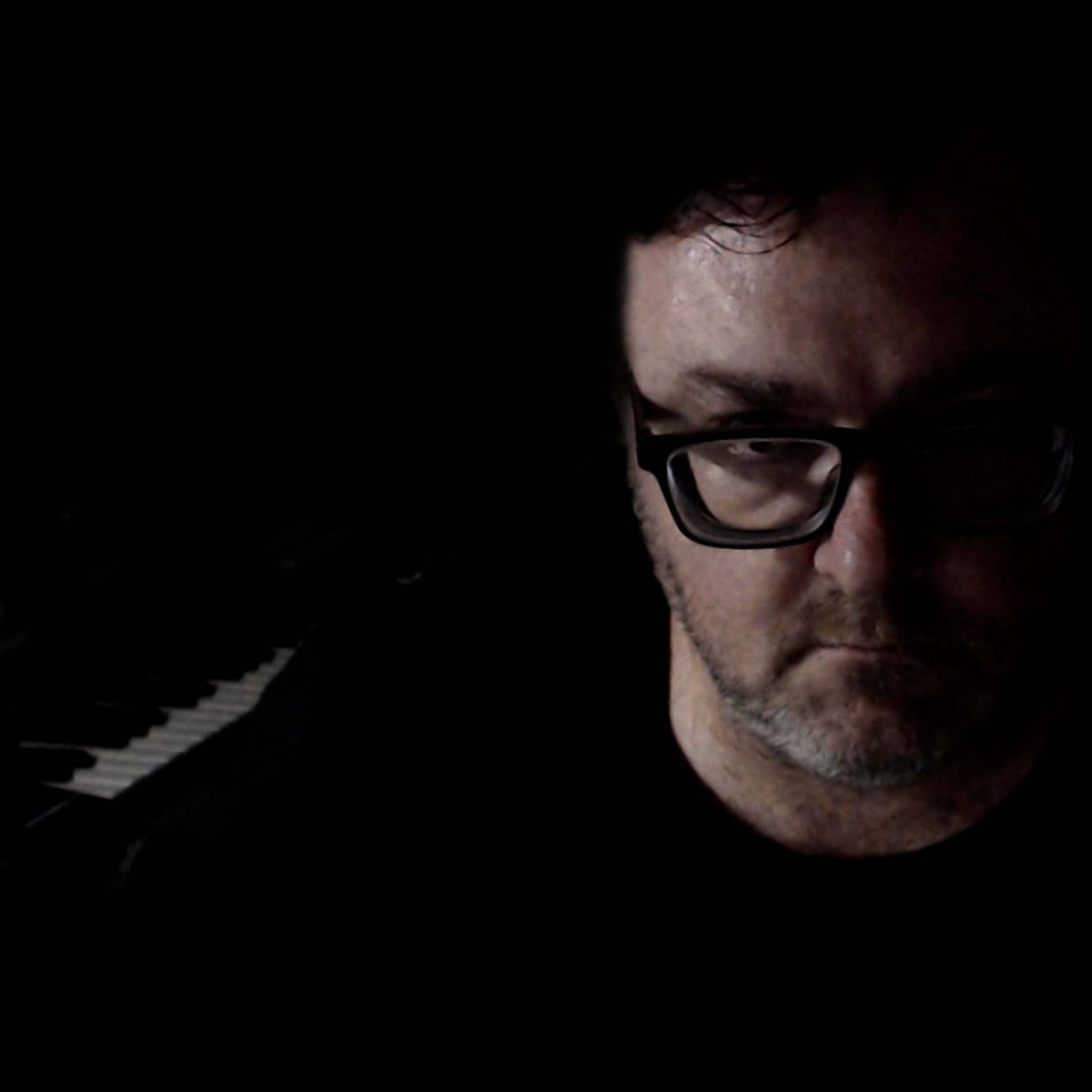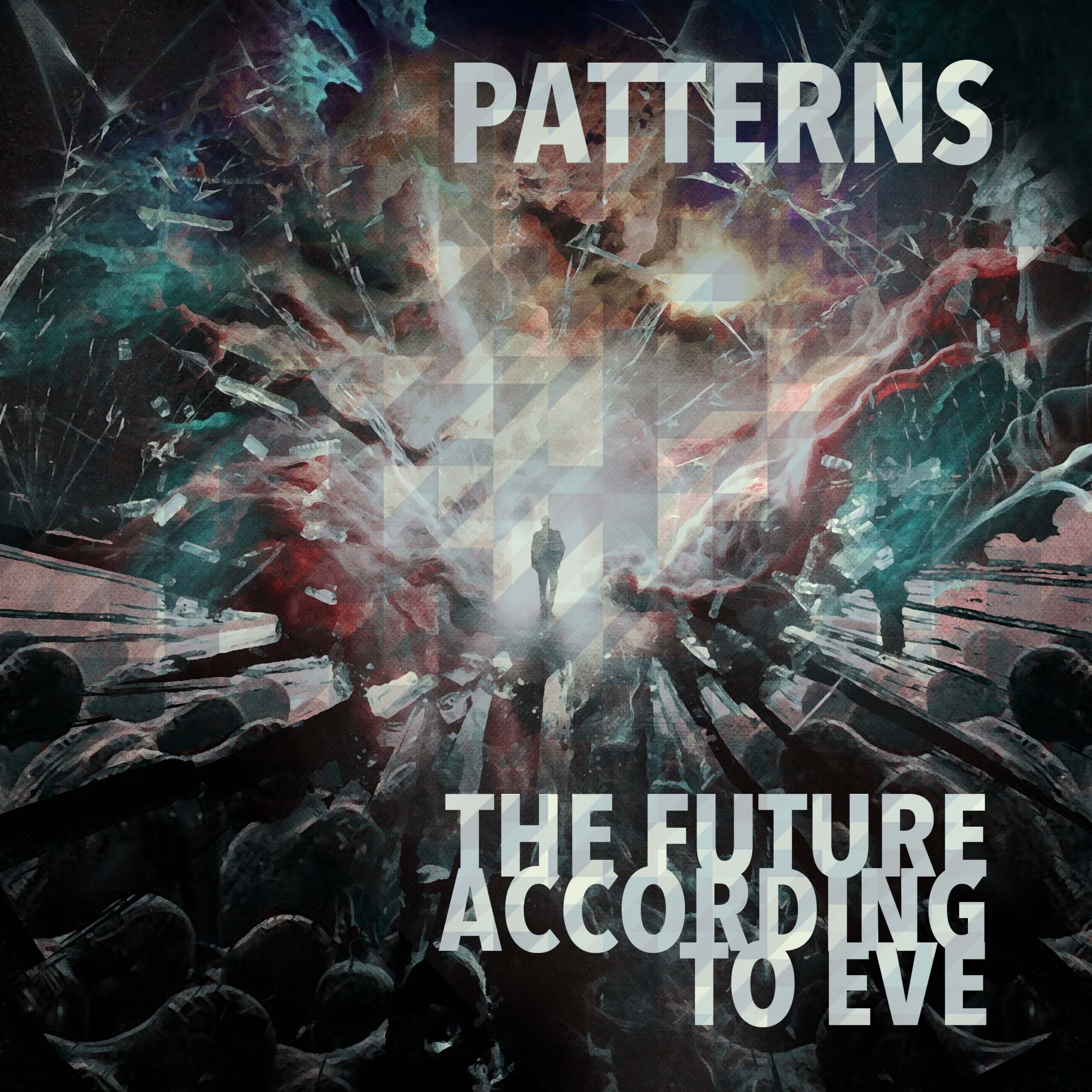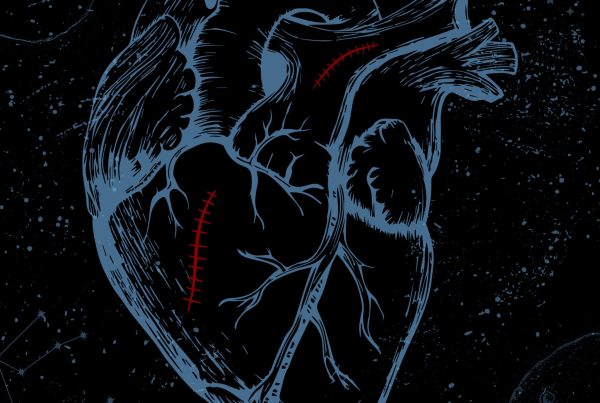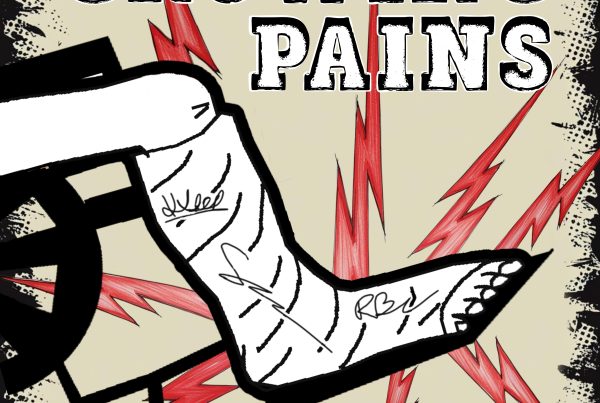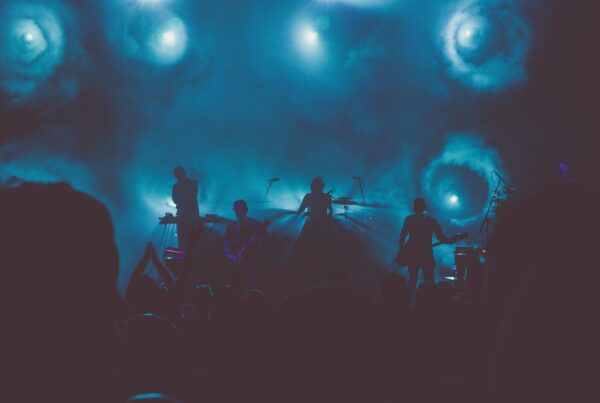Following the release of his second studio album, ‘Patterns’, we caught up with Michael Lobb of ‘The Future According To Eve’ to talk about songwriting, production and his latest release.
Can you tell us about the creative process behind the making of “Patterns”? How did you approach the writing and recording of this album, and what were some of the biggest challenges and successes you encountered along the way?
One of the biggest things is that I’m not a drummer. I have to write a lot of the rhythms and I sent them off to Kyle [Alexander] who is the drummer I’ve been working with on ‘Patterns’. With ‘Past Lives’, we worked with Dan [Gallardo] in the US and he’s a really great drummer. Kyle and I have been playing together with Inspomia for a little while so that made a bit of sense to involve him in this, especially after we played a live show in December.
I think one of the biggest challenges I had as a producer was making sure that the songs were cohesive and came together to create an album of songs that was consistent, but also told the entire story.
Your music has been described as a mix of alternative, 80’s rock and post-grunge, with influences from bands like Rush and Van Halen. How have these influences shaped your sound, and how do you approach incorporating these elements into your music while still maintaining a unique sound?
Well thank you for that. I’m very incredibly proud to be referred to in the same sentence as those bands and they have definitely shaped my sound as a musician and how I approach elements in the music. There’s also a bunch of other bands that have probably played an equal or much bigger influence in my musical upbringing than I probably give them credit for. Having been brought up in the New Zealand music scene, a lot of the musicians there are very creative and have a different sound to the rest of the world, I think. I’ve also been exposed quite significantly to the Filipino music scene and that is probably another influence that has played in my songwriting recently. Bands like Taken By Cars and Fuseboxx, for example.
“Patterns” is your second album, following last year’s “Past Lives”. How has your sound evolved since your first release, and how have you grown as musicians and songwriters in the time between these two albums?
Yeah so “Past Lives” was a series of songs that were written in the 2000s and they were recorded in a single session to basically get them out of my head and to release something that could allow me to move on from them. I really enjoyed recording “Past Lives” because it gave me a bit of a thrill to get those songs out and released to the public finally. Previously they had only ever been released on cassette or CD and only in bootleg live show type of arrangements.
“Patterns” offers a more sophisticated sound I think. There are a lot more, dare I say, “prog” type elements – there’s a lot more intricacy in the way that I developed the songs.
I also have a lot more new material there that can be drawn from. I’ve probably been influenced by other artists that I’ve discovered recently. They probably weren’t out in the 2000s to be honest, so “Patterns” has more of that influence.
You’ve been making music under the name The Future According to Eve for over two decades, with some breaks in between. How has your approach to music and songwriting changed over the years, and how do you stay inspired and motivated to keep creating after all this time?
Yeah look The Future According to Eve was a project that started in the 2000s or late 90s – but it never really got off the ground at that point in time. Although I did record a number of songs back then.
Since then, I moved to Australia, and I travelled extensively. I played with a band called Charlotte in Brisbane which was a pop-rock outfit, and I’ve also played in several cover bands and filled in for a lot of other musicians on tour.
I guess in the past five years I’ve not been as prolific as I’d like to be – but recently I’ve definitely been picking up my game in terms of our being someone who makes time to write and makes time to produce music. “Inspomia” was one of the musical endeavours that I tried which was an experiment using artificial intelligence to help produce and write music. This was very interesting because it gave me the opportunity to try a new technology but ultimately I enjoy the process of writing and bringing in my own personality into a song.
And I’ve also been co-writing a little bit with some people so I will see what that brings in the future.
In addition to your work with The Future According to Eve, you’re also a multi-instrumentalist and producer. How does your experience in these other roles inform your work with the band, and how do you balance these different creative pursuits?
Yeah as I mentioned, the previous work I’ve done with Charlotte or with Inspomia, had given me the idea that I could deliver stuff on my own. I’ve also got a great support network through other producers and my label [Dark Escapes] – all of whom are out to make sure that I’m doing the best I can and that I’m not selling myself short.
Ultimately I’m really the only person in the band, so to speak – even though there are other people involved, I am the one driving everything and I’m the one that writes all of the music. Whereas with the other projects that I’ve been involved in there’s always been other songwriters, other people involved, other people to bounce ideas off, so coming up with a final cohesive record was probably one of the challenges that I had in this for “Patterns”.
How have you adjusted to creating music during the pandemic, and has this influenced the sound or themes of “Patterns” in any way?
Well, The Future According to Eve was only really resurrected because of the pandemic, and this gave me the opportunity to spend a little bit more time working on the songs that I created back in the 2000s and bring them up-to-date a little bit as well as a re-recording them in a way that makes them sound a little bit more modern. Although I’ve gotta admit that everything I do seems to sound like it was written in the 90s and in that post-grunge era.
“Patterns”, on the other hand, is a more mature album, so I’ve been doing a lot more thinking in retrospect on the songs that I’ve written. I’ve given a lot of thought to how the music should represent me, and even though some of the material and ideas are relatively old, they’ve been polished or given a new lease on life with different instruments.
As you can see, I’ve been working a lot more with synths lately, with keyboards, vocoders and different kinds of experimental ideas. This hasn’t overtaken the music, but I think it adds to the music a lot.
What are your future plans for The Future According to Eve, and what can fans expect from you in the coming years?
I played my first live gig with The Future According to Eve very recently, I think back in December. It was only 5 songs, but it was really interesting to see how it worked. The songs still translate live, and I’m really happy with that. Although I had to use some samples, which I think you know traditional rock people will turn their noses up at – but I don’t really care.
I would like to play live more, but I’m not sure that will happen. It’s a really challenging lifestyle, and I’m not necessarily young any more.
I’m giving it my all to continue writing. I’ve got a hard drive full of ideas that I’m working on, and I’m also probably going to be contributing to other projects as well.
I think that once “Patterns” is out, I’ll need to take a break from ‘The Future According to Eve’ and think about other projects to get my head back in the right place. During that time, I always record ideas and keep them in the treasure chest for later.
What do you hope listeners will take away from “Patterns”, both in terms of the music itself and the themes explored in the lyrics?
“Patterns” is a very introspective album that covers (as with most of my music) mental health and its effects on real life. A song like “A Life Away From Here” is actually more of an allegory for conspiracy theories and the way that those obsessions can take away from the friendships and the important relationships in your life.
Whereas a song like “The Way You Go” is more personal and talks about how depression can affect those relationships. Being around people can actually take a lot of energy and when they leave being in your presence, you can breathe a sigh of relief.
“Sick”, which I released early last year, is a song obviously about alcohol and its effect on your health and your relationships. My father passed away from cancer a couple of years ago, and that turned me to alcohol a lot. I wouldn’t say it’s an addiction, but it’s certainly a bad habit I prefer that would become less of a problem in my life.
And then there’s a song like “Sell the Drama”, which is really a more esoteric and more dream state than it is real life. However, it does sort of discuss the feeling of being trapped in an existence that you can’t get out of.
Back to the question you originally asked: I hope that people take away from this that there are things on in life that affect your personal important relationships, and I think I’ve got to work harder, and I hope that everybody else realises that they’ve got to work harder at making their relationships with friends and family and important people in their lives more important. This went deep really quickly, sorry!
Musically, it’s rock music. It’s danceable and it’s there, warts and all, for you to enjoy.
Thank you so much for taking the time to speak with me today, Michael. It was truly insightful to hear your thoughts on the making of “Patterns” and the creative process behind The Future According to Eve’s music. I can’t wait for our readers to learn more about the band and their music through this interview. Thanks again for your time and expertise.
No problems, let’s do this again after album three!

